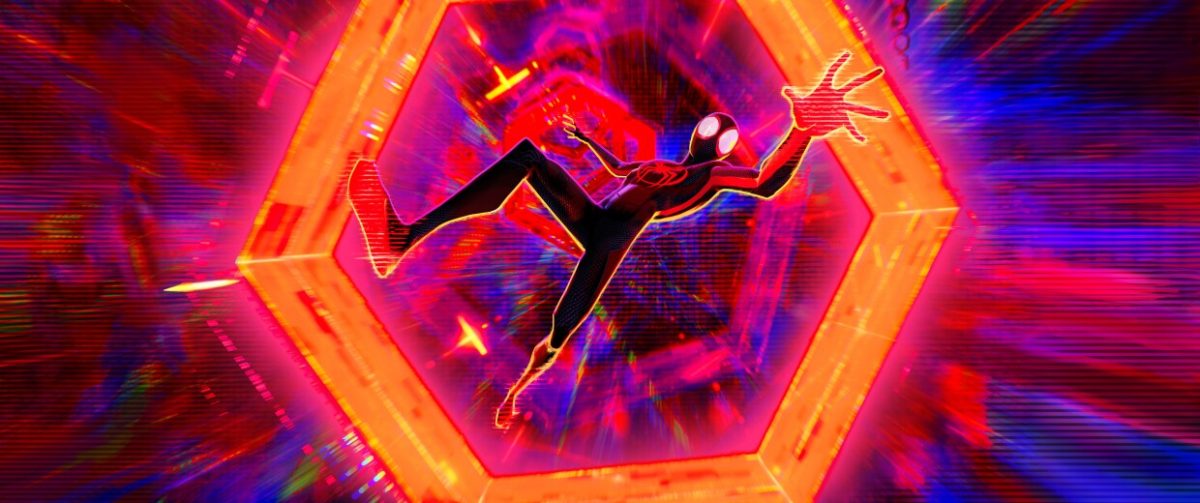There are plenty of directors with greatly impressive filmographies, such as the mastery of Steven Spielberg who has directed the likes of Schindler’s List, Jaws, E.T., and Indiana Jones, or even someone such as Christopher Nolan who has directed the likes of Oppenheimer, Interstellar, The Dark Knight, and Inception. Yet, in my opinion the director with the most impressive filmography would have to be Damien Chazelle, the director of many movies, some of their most notable ones being the likes of Whiplash, La La Land., and Babylon. Within this selection I will be highlighting the vast similarities and differences between two of this director’s most famous films, Whiplash and La La Land. First I will start by discussing the main story of Whiplash, in which the lead Andrew is able to gain a role at a leading musical academy, namely Schaffer, in a band led by Terence Fletcher. Terence Fletcher takes the role of an antagonist within the film, with his constant abuse of his pupils driving a large divide between the appearance Fletcher puts out and his actual actions. Fletcher on a personal level has a deep connection to music and hates to see how capitalistic tendencies have shaped the music industry for what he views as the worst, his agitation is only further fed by his thought that his pupils don’t share the same passion for music as he does, which leads to him having numerous emotion explosions against his aforementioned pupils with him even taking to throwing chairs at them. During this film his emotional outbreaks define his character with him practically being turned into a catalyst ready to explode at any moment, where even the slightest mistake or mishap could trigger an entire explosion. The relationship between Andrew and Fletcher throughout the film is incredibly nuanced with Andrew sacrificing nearly everything he has just to make it into the position he is in, even going as far as to garner the strength to climb out of his car after a car accident with him being bloodied head to toe just so he can make it to a performance on time. Andrew is dedicated to his craft, yet even this astute dedication isn’t enough for Fletcher and he continues to prod at him and push Andrew further and further to his limits, with his nitpicks becoming increasingly meaningless and needless, such as the famous scene where Fletcher has an increasingly violent reaction to Andrew who can’t tell if he’s “rushing” or “dragging”. This culminates not in Andrew, but in one of Fletcher’s pupils, Sean–a former pupil of Fletcher–, who commits suicide due to his life being rife with abuse from his former mentor, as a result Andrew testifies and gets Fletcher fired from Schaffer. Within the story while Fletcher is a terrible and unredeemable human, at times you can’t help but understand him and his plight. While his methods are brutal, needlessly cruel and even at times dehumanizing, you can empathize with his message to an extent, as discussed previously this hatred within Fletcher is due to his perceived problems with the music industry with profit being at the center of nearly everything, a thought many of us can resonate with to some extent, he hates this, and his perception of the lacking passion of his pupils only helps to further his violent tendencies. While this film is incredibly nuanced there is a large underlying message to everything, this being the idea that the obsession with the road to perfection is paved with destructive tendencies bound to bring you to your knees. As I previously mentioned this is seen with Fletcher with his desire to become the best leading to his increasingly violent tendencies culminating in him being fired from the Schaffer after Andrew testifies to his misdeeds and abuse. On the other hand, you have Andrew whose passion and obsession with perfection has got him this far, only to get in a car crash try to show up to the band meet only for him to be kicked off the band by Fletcher. This action fuels Andrew’s own destructive tendencies and the dominoes which have been steadily set up from the very beginning of the movie begin to fall with Andrew attacking Fletcher (this occurs before he was fired from Schaffer) and being expelled from Schaffer, putting him in the exact same situation he was in when the film began, a drummer looking for a place to go. This finally fulfills the film’s thesis that an obsession with perfection can only lead to one’s destruction. A similar sentiment appears in countless novels, shows and films such as Oppenheimer with both the strive for perfection destroying both the lives of Robert Oppenheimer and Lewis Strauss, similarly in Soul a similar–albeit more forgiving –idea is expressed through Joe Gardener who gets so caught up in their dream to become a musician at a bar that they end up forgetting the original satisfaction they got from their teaching career. While these movies feature very similar underlying ideas to Whiplash they don’t go as far to show the emotional depravity it can lead to as it does through the actions of Fletcher during the entire film and Andrew’s attack on Fletcher once he was finally fed up with the plethora of demands from Fletcher. Overall, this film highlights the obsessive strive for greatness and how it can completely change a person’s outlook and perspective in life.
Then you have La La Land, Damien Chazelle’s next film after Whiplash. This film follows a vastly different narrative structure and overall has a very different feel than Whiplash, where Whiplash’s atmosphere is oppressive and depressing, La La Land’s atmosphere is far more optimistic and full of juvenile wishes and desires. This divergence is so large that it’s hard to even recognize that the same director made both films, with the only real continuities being the consistently phenomenal camera work and J.K. Simmons (albeit holding a far smaller role in this film). This film follows two main leads Sebastian and Mia, Sebastian is an upcoming pianist who dreams of opening a Jazz bar in L.A., while Mia is an upcoming actor who wishes to make it big and break out of her job as a barista. They both seek to fulfill these desires and arrive in a “technicolor dream world”, yet reach seemingly impossible roadblocks in the progression of their dream careers. Sebastian is laid off from his job as a pianist in a restaurant, and Mia is continuously denied any acting opportunities. Over time their conditions continue to deteriorate, until Mia and Sebastian finally meet at a pool party during the spring. This begins both of their rise as they begin to break through the barriers which kept them from their goals, their relationship begins to become a driving force in both of their lives with it finally taking them to a “technicolor dream world” as seen within the song “Lovely Night” where the sparks of the relationship clear the sky and make nearly everything seem possible. This relationship helps both of their lives improve while simultaneously leading them further from their wanted goal with Sebastian settling for playing the piano for a Jazz band and Mia failing to achieve recognition for her one woman show. These drifting desires career-wise begins to drive a wedge between them with this culminating in an argument from which their relationship wouldn’t be able to recover. Eventually despite the growing rift between them, Sebastian would help Mia be able to finally land an acting position overseas, which would end up bringing an end to their relationship with Sebastian on tour with his band and Mia acting overseas. Despite the end of their relationship, both of their careers begin to prosper with Sebastian being able to quit his band and open a Jazz bar, and with Mia finally making it big as a famous movie star. After a few years, Mia ends up wandering into Sebastian’s bar, and despite the critical acclaim she has garnered and how she has finally achieved her dreams, she couldn’t help but feel sad, reflecting upon Sebastian and her own relationship and how it could have turned out differently. Sebastian does the same despite his dream being accomplished of owning a lively Jazz bar. This very sequence of events have been actively being set up since the very beginning of the film, with their connection shown to take them to their “technicolor dream world”, with the relationship defining both of their lives, with them even being willing to compromise their own dreams to make the other more economically comfortable. This helps to create a large overarching theme throughout the entirety of the movie, with the idea that to achieve a dream you need to make sacrifices along the way, if they were to stay together either Sebastian or Mia would have to give up on their dreams, while if they were to pursue their dream careers they would have to sacrifice their relationship.
While these two films may seem so vastly different in a countless number of ways, these films share so many similarities which are simply not perceived by many. A great example of this would be each film’s themes. Both films address the idea of success and perfection, yet end on different conclusions from each other. In Whiplash the pursuit of greatness leads to destructive tendencies in each character which strives for it, with Andrew’s passion turning into hate, and Fletcher’s abilities being used to justify abuse of his pupils. While both characters have different ways of expressing these destructive tendencies, they both end up attacking other characters with the justification that it’s part of their pursuit for greatness, with Fletcher constantly berating nearly every character in the film and Andrew attacking Fletcher towards the end of the film. On the other hand you have La La Land, while it does deal with similar subjects and themes as Whiplash it has vastly different ways of tackling them. The theme of La La Land is far more about sacrifice: whether it is sacrificing a relationship for a career or vice versa–both of which we see within the film. With Mia and Sebastian sacrificing their relationship in order to advance their individual careers. This idea is very similar to the main theme of Whiplash, yet in that movie it’s not a tangible thing which they are sacrificing–such as relationship or career–, but rather their own humanity and civility, with their pursuit of greatness becoming so engrossed in their life that it takes them over as a person and drives their every action. The idea of sacrifice serves as an important continuity between these two films, despite how vastly different these sacrifices are. Overall these movies serve as a testament to how unique living as a human is, we have to constantly make tough choices, choose: between our dream career or relationship and between success and humanity. These movies force us to beckon with how we live our lives, the choices we make and how we treat others, pointing a mirror at us and asking if we are really the best version of ourselves that we could be?








